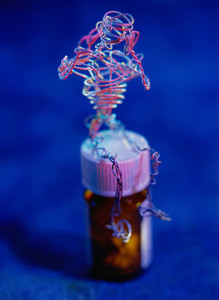Médecins Sans Frontières (MSF, Doctors Without Borders) announced on 19 June 2018 that it was challenging the ‘unmerited’ patent in China for hepatitis C medicine velpatasvir from Gilead Sciences (Gilead). The health advocacy group said that ‘affordable generic versions from China could save millions of people’s lives’.
MSF challenges hepatitis C patent in China
Generics/General
|
Posted 20/07/2018
 0
Post your comment
0
Post your comment

MSF has filed a patent challenge at the China State Intellectual Property Office asking for Gilead’s patent to be invalidated. The group said that it is contesting the patent ‘on the grounds that it involves well-known technologies, rendering it an unmerited patent under China’s patent law, which is consistent with the World Trade Organization rules’.
Velpatasvir is a direct-acting antiviral (DAA) and is one of the key medicines used in combination with another DAA – sofosbuvir, for the oral treatment of all six major genotypes of hepatitis C virus. Its effectiveness as a pan-genotypic medicine offering a well-tolerated cure makes it a crucial drug in the fight against hepatitis C.
According to Gaëlle Krikorian, Head of Policy for MSF’s Access Campaign, ‘without access to affordable DAAs, people with hepatitis C in China are still forced to take an older, injected drug called interferon, which has low cure rates and causes people severe side effects, such as psychosis’. She added that ‘unlocking unmerited patents on velpatasvir and sofosbuvir will open up access to affordable generic versions of this crucial treatment’.
According to MSF, ‘Gilead launched the sofosbuvir/velpatasvir combination at a price of US$51,000 for a 12-week treatment course in the UK, whereas the same treatment course is available for as low as US$286 in India from generics manufacturers. In China, this combination was registered in May 2018, but Gilead has not yet announced its price’.
China is the world’s largest supplier of active pharmaceutical ingredients (APIs) and if patents were not a barrier, China could become an important supplier – both domestically and internationally – for both the raw materials and finished products of oral hepatitis C drugs, according to MSF.
The World Health Organization (WHO) estimates that 3% of the world’s population has been infected with the hepatitis C virus and that more than 170 million chronic carriers are at risk of developing liver cirrhosis, liver cancer or both. It is thought that about 350,000 people die due to the virus each year [1].
MSF has long been an advocate in the fight against what it terms ‘unjustified patents’. The group launched an online ‘Patent Opposition Database’ back in 2012 [2].
Related articles
India and Argentina call for hepatitis C generics
Generics makers challenging more patents
References
1. GaBI Online - Generics and Biosimilars Initiative. Improving access to HCV treatment in developing countries [www.gabionline.net]. Mol, Belgium: Pro Pharma Communications International; [cited 2018 Jul 20]. Available from: www.gabionline.net/Biosimilars/Research/Improving-access-to-HCV-treatment-in-developing-countries
2. GaBI Online - Generics and Biosimilars Initiative. MSF launches online ‘Patent Opposition Database’ [www.gabionline.net]. Mol, Belgium: Pro Pharma Communications International; [cited 2018 Jul 20]. Available from: www.gabionline.net/Policies-Legislation/MSF-launches-online-Patent-Opposition-Database
Permission granted to reproduce for personal and non-commercial use only. All other reproduction, copy or reprinting of all or part of any ‘Content’ found on this website is strictly prohibited without the prior consent of the publisher. Contact the publisher to obtain permission before redistributing.
Copyright – Unless otherwise stated all contents of this website are © 2018 Pro Pharma Communications International. All Rights Reserved.
Source: MSF
Research
Japan’s drug shortage crisis: challenges and policy solutions
Saudi FDA drug approvals and GMP inspections: trend analysis
EMA launches European shortages monitoring platform to tackle persistent medicine shortages

Generics/General Posted 03/12/2024
FDA releases one-year progress report for the Generic Drug Cluster

Generics/General Posted 28/10/2022
The best selling biotechnology drugs of 2008: the next biosimilars targets








Post your comment